The Rudest Book Ever Summary by Shwetabh Gangwar tries to bring a fresh perspective on how we see the world. It emphasizes why one should focus on learning how to think rather than knowing what to think. Also, it teaches why understanding your “self” is crucial in dealing with common problems like rejection.
Who Should Read The Rudest Book Ever?
- Anyone who wants straightforward, honest, and thoughtful advice on relationships and life.
- Anyone who wants to cut through the bullshit.
- All those accustomed to thinking only about what they have been taught, and never think differently.
Get this book on Amazon: Paperback
About The Author Of This Book: Shwetabh Gangwar
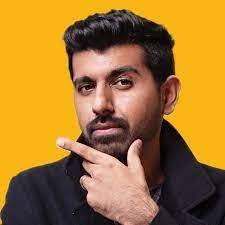
Shwetabh Gangwar is an Indian YouTuber and a problem solver with a following of more than 1M people.
He is also a bestselling author.
He mostly discusses various problems that the younger generation faces on his YouTube channel these days.
Mostly, his videos are in Hindi. So if you don’t understand the Hindi language, you may find it challenging to understand what he says.
But on the flip side, if you are an Indian and understand Hindi well, his videos might help you solve many problems in many aspects of your life like relationships, time management, career, etc.
The Rudest Book Ever Summary (PDF)
In this book, Shwetabh shatters our existing beliefs.
So brace yourself because some lessons will be rude.
You might even disagree on some.
But once you read them all, you’ll realize how close they are to reality.
And in this article, I’ll share 11 lessons that I have learned from The Rudest Book Ever.
So without wasting any time, let’s quickly dive into the lessons.
Best Tools for Bibliophiles
- Listen to your Favorite Books on The Go: Try Audible and Get Up To 2 Free Audiobooks | Get 3 Free Audiobooks
- Read over 2 million e-books on any device: Sign up for 30 days free trial of Kindle Unlimited and read your favorite titles.
- Get free 2-day shipping of your favorite books and stream premium TV shows on Amazon Prime: Sign up for 30 days free trial of Amazon Prime.
- I use Notion to take reading notes, plan everything, and run all my businesses. (Notion is my Second Brain 🤯): Get Notion for free for personal use (paid for teams/businesses)
Lesson #1: You Are A Nation
Shwetabh gives you a fascinating angle of seeing yourself as a nation.
Don’t think of yourself as a person. Think of yourself as a nation.
Just as a nation has its constitution, you should also have a code to live your life by.
When you start seeing yourself as a nation, the first thing that happens is that you take control of your life.
You become the authority.
You start to think for yourself and determine what’s good for you and what isn’t.
When another person tries to attack you, you put your guard up.
Just as a nation has its army to defend itself, you should also have your self-esteem or self-respect to hold yourself up and fight obstacles.
Thinking of yourself as a nation doesn’t mean you don’t have to consider your relationship with other people.
A nation prospers when it holds healthy relations with its neighbors. And it’s the same with you.
Just as a nation can’t control other countries, you can’t control other people.
The only thing you can control is yourself.
Suggested read: What you think of me is none of my business (Book Summary)
Lesson #2: Parents Aren’t Experts
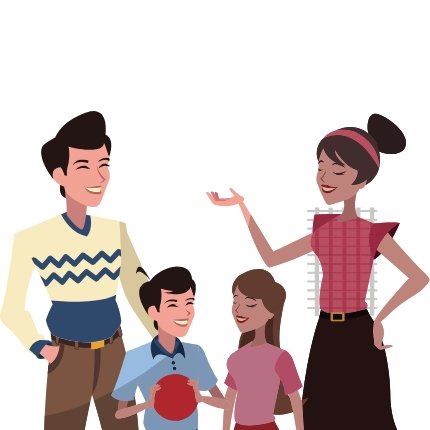
Now, this may sound rude to some people.
And yes, it is rude but true.
Our parents don’t know everything.
We believe that our parents are some specially designed creatures tailored just for us, and they have a solution to all our problems.
Well, the truth is that they aren’t geniuses, and they don’t have a solution to every puzzle in our lives.
Parents are people too, just like you.
And people are weird, says Shwetabh.
What do you think about people?
Can you even define people?
Everyone has his way of defining people, which also depends on their experiences.
To some people, people are confusing.
While to some, people are complicated and shitty.
Shwetabh calls people weird, as it doesn’t define people in extremes.
Judging people in extremes is not a good idea.
For example, a person can be both good and bad. It just depends on the circumstances.
Instead of labeling people, we should embrace the idea that people are weird and be content with that.
I highly recommend you to read You Are Not So Smart Summary. It will help you learn about various psychological biases. After reading this, you’ll know how human beings are prone to make silly errors more often than we think.
Lesson #3: Specialness Is Earned
Somewhere deep down in our hearts, we all want to feel special.
But what does feeling special mean to you?
Do you want to get the recognition of other people?
Does getting approval from other people that you are special matter to you?
Do you even need to feel special in the first place?
Let’s say your colleagues or friends think that you are unique. Even your parents have told you that you are unique.
So, do you become special when others say so?
The straight answer is no.
People aren’t qualified enough to decide whether someone is special or not.
Shwetabh says that specialness is something you earn. And for that, you must ask yourself whether you are unique or not by closing your eyes.
Your “self” will give you the correct answer. Ask yourself.
“If you need somebody else to tell you that you are special, then you have not done anything to earn it.”
~Shwetabh Gangwar
Lesson #4: First Impressions Can Be Delusional
We love judging people being humans.
Whenever we meet someone for the first time, our mind gives a rating to them and decides whether they are better than us or not.
But that’s the wrong way of judging someone.
When you judge someone for the first time, you don’t have any real-life data about them.
Most of the judgment is based on their outer appearance, how they present themselves in front of others, or what others say about them.
The caution here is that everyone tries to market themselves as someone they are not.
You never know (unless you are wise) when you are being sold a bullshit idea.
That is why relying on first impressions is a shitty way of making judgments.
The best way is to look at their actions and wait until you gather enough real-life data.
Making assumptions without the right data will never give you an accurate analysis of a person.
Recommended: Your erroneous zones book summary
Lesson #5: Rejections Are Normal

This world is a jungle where all humans compete for their survival.
You will be rejected at some point in your life.
Here is the thing with rejection: it makes you doubt yourself.
When you get rejected, your self-esteem takes a big kick from behind.
And these questions start creeping into your mind:
“Do I lack something?”
“Why am I like this?”
“What is wrong with me?”
It’s also possible that you will get motivated after being rejected.
“Now, I will show you what I’m capable of.”
“You will regret rejecting me after some time.”
Do these sentences sound familiar?
Getting motivated by rejection is also a bad idea.
So, how do we deal with it?
You need to realize that rejections have nothing to do with you.
Rejections don’t mean anything and shouldn’t bother you at all.
This sounds so simple, doesn’t it?
It is you who has to decide your self-worth.
Nobody knows “you” more than you.
Getting depressed or motivated by rejection only means that you are desperate for another person’s approval, which you definitely shouldn’t be.
“Rejection from people should mean jack-shit to you.”
~Shwetabh Gangwar
Must read: The courage to be disliked book summary
Lesson #6: Stop Chasing Happiness
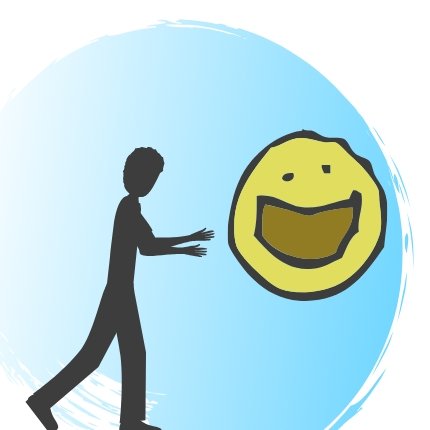
What’s your ultimate goal in life?
I know it’s super hard to answer.
But if you believe that the objective of life is to attain happiness, then you might get into a bit of trouble.
There is a flaw in chasing happiness: you never stop chasing those things that make you happy or give you immense joy.
Once you get something pleasurable, you crave more.
Happiness doesn’t last for eternity.
Therefore, one should continually strive for self-satisfaction.
“You have to say, f*ck happiness. I don’t want to be happy, I want to be satisfied in life. I want self-satisfaction.“
~Shwetabh Gangwar
Lesson #7: Know Your “Self”
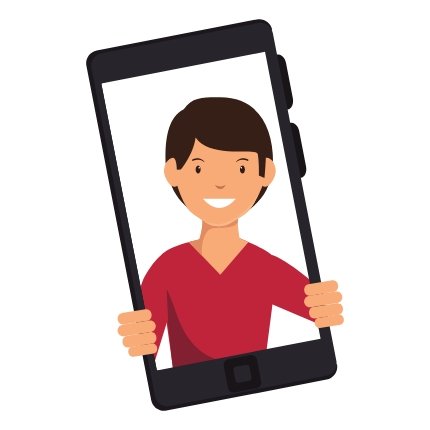
You might have noticed the word “self” for quite a time now.
So, what is it? Why do you even need to know your “self”?
According to this book, the “self” is the individual in you.
Your “self” is the silent voice in your head that you try to avoid all the time.
Instead of getting away from your “self,” you should embrace it.
The common problem with people is that they depend on others to grade them.
Instead of making their “self” the authority, they make others the authority who don’t have a f*cking clue about them.
That way, they lose their confidence in themselves, and in the worst case, they lose their identity.
And in their dumb effort to please people, they waste their precious time.
You must try to know as much as you can about yourself.
Knowledge of self will also help you in learning how to think. [More on this below…]
You might also like: 9 Reasons You Are Important Than You Think
Lesson #8: Quit Following. Start Admiring.
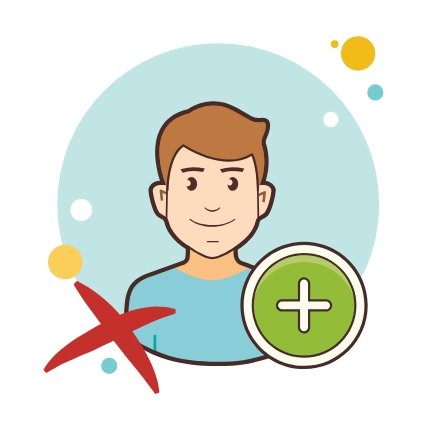
If you have read any fiction books or watched any fictional movie, which you probably have, you know that Heroes always win in the end, no matter what the story is.
As Villains are sinister and always lose, nobody loves them.
People love those who win and are followed by others.
It’s good to admire your heroes.
So, what’s the point here?
The problem starts when you start blindly following your heroes.
Some people even start copying them.
They do precisely what their idols say or do.
It’s not a good idea to put heroes on a pedestal.
There are no heroes and villains in the real world.
Heroes and Villains exist only in fiction.
In the real world, there are only people.
And as Shwetabh says:
“People are weird.”
Therefore, admire people and learn from them. But don’t become someone’s blind follower.
Lesson #9: Perfection Only Exists Online
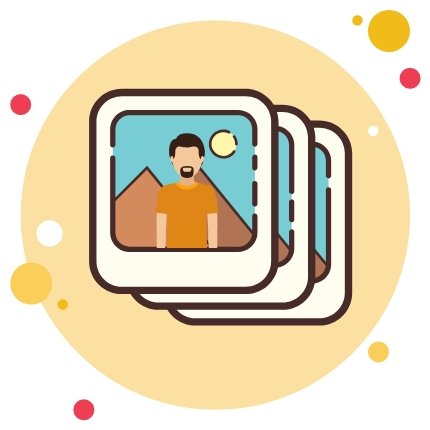
In real life, people aren’t perfect.
People have so many flaws that even they aren’t aware of.
However, when it comes to online, they are nothing but perfect human beings.
Perfection sells well online.
And when you see those perfect figures or people online, you realize that you lack something they don’t, which causes self-doubt.
After that, you see hope. And then starts a dream of achieving a fancy, glamorous success as they have.
You might ask, what’s wrong with that?
The thing is, you don’t have any real-life data about them.
Put simply: You have no idea what they are like in real life.
Getting online and posting perfect shots on Instagram doesn’t make you a genius.
Also, blindly following someone on social media is utter foolishness.
When you foolishly try to become like a celebrity, you lose your individuality.
Remember that if something looks perfect online, it has gone through so many edits by professionals who are good at their game.
Lesson #10: A Relationship Is A Partnership

The whole point of a relationship is to complement each other’s life.
But some people think that they would become happier if they went into a relationship.
Remember that:
It is YOU who should have the authority to make you happy or self-satisfied.
The source of happiness must never be the other person.
That’s why going into a relationship just to get happier is a terrible idea, says Shwetabh.
Others don’t dare to f*ck with your nation if you have a strong leader. And when they do, the leader knows how to take care of you.
~Shwetabh Gangwar
Learn more about love: The mastery of love book summary
Lesson #11: You Must Learn How To Think
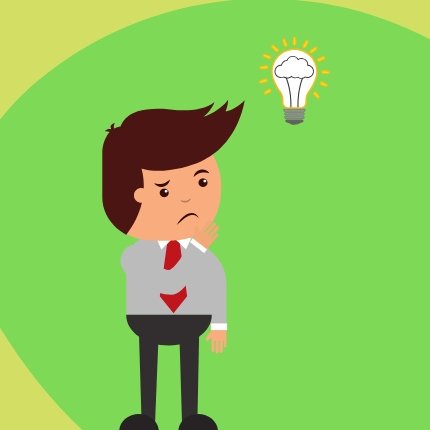
From the moment you are born, you are taught “what to think.”
You might ask, why doesn’t anyone teach us “how to think”?
Even after they become adults, some even after crossing the fifties, don’t learn how to think.
There are very few people on earth who can think something different from what they already know.
And since people, in general, are never taught how to think, you never get to learn how to think.
“What to think” is basically all the information fed into your brain.
Once you learn how to think, you’ll be able to break the programming in your head and think original.
One way to learn how to think is to solve your problems yourself.
What do you do when you encounter a puzzling situation?
Well, these days, we have Google, and it knows everything.
So, you go to google.com and search for the solution to your problem.
You never really do the brainstorming part.
You accept whatever solution the Internet offers to you.
In short, you hardly practice thinking.
The surprising thing is people don’t really care about thinking.
The general idea is that the more you know, the better. This isn’t true at all.
Also, only a tiny percentage of people would be able to tell you the difference between knowledge and intelligence.
Especially when Artificial Intelligence is on the rise, few people put effort into learning how to think.
“How do you expect to learn how to think when you hardly ever practice thinking!”
~Shwetabh Gangwar
The Key Takeaways From “The Rudest Book Ever Summary”
- Value yourself as if you’re a nation.
- Don’t buy bullshit from anyone.
- Nobody is exceptional on this planet.
- Stop being entitled. Never believe anything without proper analysis of facts and data.
- Happiness isn’t something you should chase.
- Learn how to think.
- Never follow people blindly. Be rational and selective.
Best Tools for Bibliophiles
- Listen to your Favorite Books on The Go: Try Audible and Get Up To 2 Free Audiobooks | Get 3 Free Audiobooks
- Read over 2 million e-books on any device: Sign up for 30 days free trial of Kindle Unlimited and read your favorite titles.
- Get free 2-day shipping of your favorite books and stream premium TV shows on Amazon Prime: Sign up for 30 days free trial of Amazon Prime.
- I use Notion to take reading notes, plan everything, and run all my businesses. (Notion is my Second Brain 🤯): Get Notion for free for personal use (paid for teams/businesses)
People who like this book also like
[amazon box=”1721225749,0062457721,0062888439,1647432502,1646963776, 1592406599″ grid=”3″]
Learn how to become confident and overcome your insecurities and fears
Did you ever feel like you needed the approval of other people?
Did you ever feel like you needed to please people to maintain your self-image?
Have you ever felt under-confident in your life?
If you said yes to any question above, I highly recommend that you enroll in this course by TJ Guttormsen on LinkedIn Learning:
Confidence: How to Overcome Self-Doubt, Insecurity, and Fears
TJ Guttormsen is a certified expert in psychology and pedagogy on one of the highest-rated instructors on the LinkedIn Learning platform.
How to view this course for free?
Go through the link below…
And Sign up to get a one-month FREE trial on LinkedIn Learning.
Get unlimited access to more than 16000 courses taught by real-world experts.
Click here to claim your 1-Month LinkedIn Premium Free Trial
The Rudest Book Ever Summary Infographic
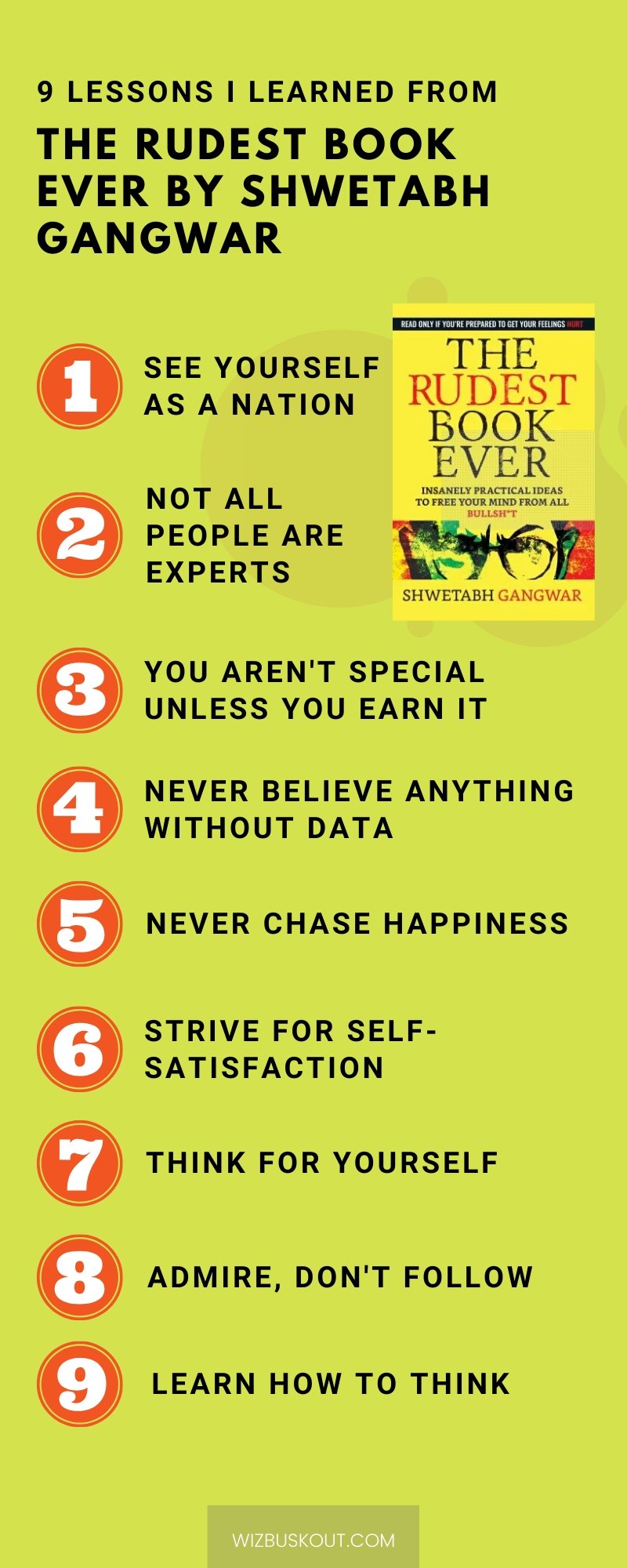
The Rudest Book Ever Review
As the name suggests, this book was rude… I mean, really rude.
This book is filled with harsh words. You will find F-bombs here and there.
But Shwetabh did an impressive job.
Usually, in most of the books, you’d find fluff.
The best thing about this book is that Shwetabh doesn’t waste time building the environment. He gets to the point quickly.
No stories, no hyped ideas, no fluff.
What you get in this book is raw quality.
This book would change your perception for sure.
I also loved Shwetabh’s style of writing:
Sentences were easy to understand and packed power.
Purchase this book: [amazon fields=”9388754433″ value=”button”]
The Rudest Book Ever Quotes
Here are a few quotes I liked in The Rudest Book Ever:
“If people were products, then what we see around us are really shitty ones.”
~Shwetabh Gangwar
“We are animals trying to become humans.”
~Mike Tyson
“The day you can look at a bunch of people competing with one another to be better in the eyes of someone, and choose not to be the part of that game, is the day you win in the mental battle of life.”
~Shwetabh Gangwar
“Nobody can fix someone who doesn’t want to fix himself/herself.”
~Shwetabh Gangwar
FAQs about The Rudest Book Ever by Shwetabh Gangwar
Is The Rudest Book Ever a good book?
Yes, The Rudest Book Ever is a great book. But I would say that it mainly targets teenagers who have no clarity and purpose in life.
What The Rudest Book Ever is all about?
This book is all about busting false myths or notions in the young generation’s minds that stop them from living a better life without any insecurities.
How many pages are there in The Rudest Book Ever?
There are 213 pages in this book.
Is The Rudest Book Ever a self-help book?
Yes, it’s a self-help book. But provides an unconventional approach to looking at life.
What does Swetabh gangwar do?
Shwetabh Gangwar is a YouTuber and a professional problem solver.
How many chapters are there in the rudest book ever?
There are 17 chapters in this book.
Why is Shwetabh gangwar famous?
Shwetabh is well-known for his intellectual and inspiring videos on YouTube, where he doesn’t shy away from being rude.
Want to keep reading & Learning?
Related Book Summaries:
- Book Summary: Chanakya Neeti by R.P. Jain [amazon fields=”8128400487″ value=”button”]
- Book Summary: Ikigai by Hector Garcia and Francesc Miralles [amazon fields=”0143130722″ value=”button”]
- Book Summary: The 7 Habits Of Highly Effective People by Stephen Covey [amazon fields=”1982137134″ value=”button”]
- Book Summary: Man’s Search for Meaning by Viktor Frankl [amazon fields=”0807014273″ value=”button”]
- Book Summary: Who Will Cry When You Die by Robin Sharma [amazon fields=”0006385788″ value=”button”]
- Book Summary: Attitude Is Everything by Jeff Keller [amazon fields=”0979041031″ value=”button”]
If you loved this summary, you might also like Blinkist.
It’s a non-fiction book summary app that provides summaries, audiobooks, podcasts, and more… from over 4500+ books.
I’ve been using this app straight for almost two years now.
I highly recommend this app to busy people who love reading or listening to books.
Click here to claim your Blinkist 7-Day Risk-Free Trial
Now It’s Your Turn
I hope you enjoyed reading The Rudest Book Ever Summary.
Please don’t hesitate to share it with others. Thanks!
Over to you now:
Do you believe that we are a nation in ourselves?
What did you like in this summary?
What do you think could be improved?
Did it bring a change in the way you perceive reality?
Tell me in the comment section below.
Want to consume more insightful, power-packed content like this in the future?
Subscribe to the weekly email newsletter.
Subscribe to YouTube channel for animated video books.
Try Amazon’s Audible 30-days Free Trial and Get 2 Audiobooks for free.
